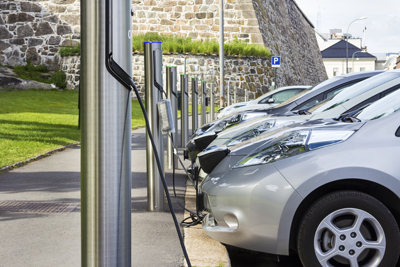The California Energy Commission is taking steps to increase EV charging networks’ accountability and responsiveness to complaints, as the number of EV owners in the state grows quickly.
Among EV makers, only Tesla has solved the problem of long-distance travel in an all-electric car with its Supercharger Network, which provides a simple, quick and reliable system for the company’s vehicles. The Supercharger Network in the U.S. is still exclusive to Tesla as of writing, so non-Tesla EV owners are required to use other DC charging solutions for their vehicles.
This is where problems ensue, since DC fast charging systems even in EV hubs like California are still far from very reliable.
As noted in a Car and Driver report, EV charging networks may list a charger as “working” as long as the stations respond to a ping request from a remote center. The system is better than nothing, but it is prone to errors, since charging stations can maintain cellular connectivity despite having issues like jammed credit card readers or software errors.
The issue has been so notable, EV owners have come up with crowdsourced solutions to accurately rate DC chargers. Among these is the @rateyourcharge account on Twitter, created by EV group Out of Spec Studios to provide accurate reports of EV charger capabilities in the wild.
Amidst this environment, the California Energy Commission has shared plans to establish regulations for evaluating the reliability and availability of public EV charging stations. The commission is set to begin a public feedback process with the aim of defining “uptime” standards for EV chargers. These are expected to block excessive exemptions that would enable EV charging networks to avoid being held accountable for the reliability of their service.
The commission also said it will no longer rely on self-reported claims from EV charging network providers regarding the availability and uptime of public charging stations. Instead, the commission plans to gather data from various sources to gain feedback from the public about the reliability and availability of EV charging stations. This feedback could include reports of non-functioning stations posted on apps and other platforms.
Efforts are also underway for California to evaluate the availability of EV charging stations at the individual station level instead of the overall site. This is different from the draft standards being developed by the National Electric Vehicle Infrastructure (NEVI) program, which could result in some charging sites getting a 100% score just because one stall is functioning. EV charging networks generally prefer this system, but EV owners are the ones who end up with the shorter end of the stick.
Providing fast and reliable charging solutions to EVs is no small task. Non-Tesla Supercharger networks like Electrify America have to cater to numerous brands of cars with equally numerous types of software. Managing membership plans for EV owners is also a complicated task.
But as EVs become more mainstream, the time is right to demand more accountability among charging network providers. There will only be more EVs on the road in the coming years, after all, so it only makes sense to ensure they are well-supported.










Abby Andrews